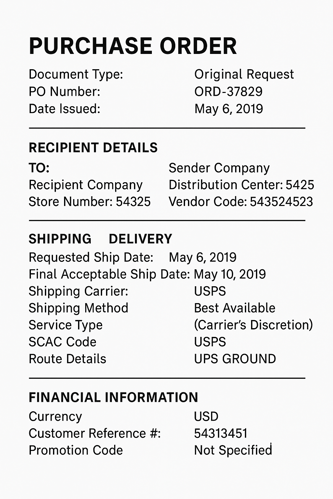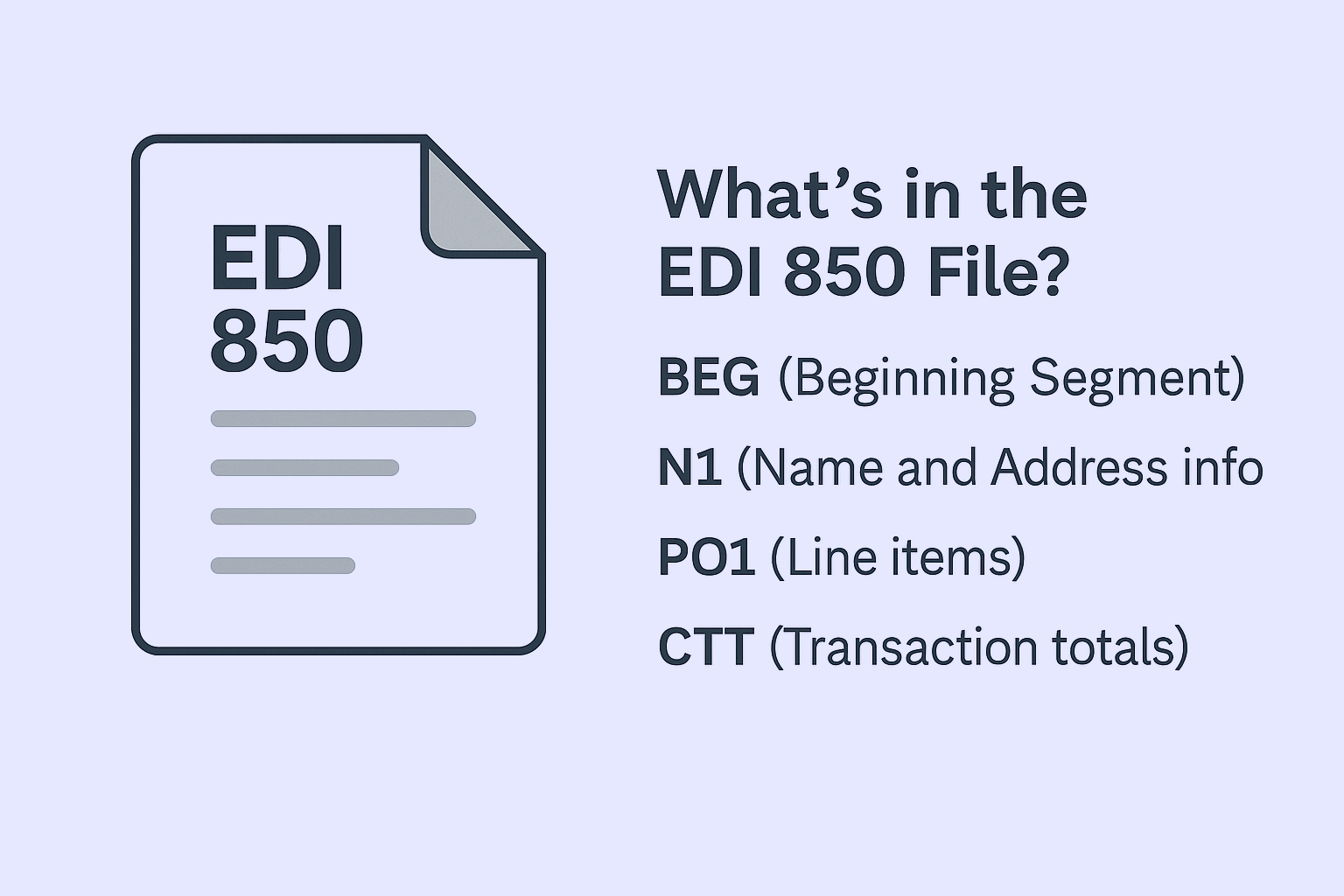EDI 850 Purchase Orders
Format, Examples & Automation
Trying to understand EDI 850 requirements for a retailer or ERP integration? This guide breaks down the format—and shows how OrderEase helps automate EDI 850s without custom mapping or middleware.
-1.png)

What is an EDI 850?
An EDI 850 is an electronic purchase order—a standardized file that tells a vendor what to ship, when, where, and how much. It’s usually the first step in an EDI workflow and triggers order fulfillment.
The EDI 850 typically includes:
-
Purchase order number & date
-
Buyer/seller contact details
-
Item SKUs, quantities & pricing
-
Shipping method & requested delivery date
-
Payment terms & allowances
What's in the EDI 850 File?
The 850 follows the ANSI X12 format and usually contains:
-
BEG (Beginning Segment)
-
N1 (Name and Address info)
-
PO1 (Line items)
-
CTT (Transaction totals)


Why the Spec Isn’t the Whole Story
Reading the format is one thing. Implementing it correctly, especially for multiple retailers, is where teams run into issues.
Common problems:
- Slight spec differences between retailers
- Need for acknowledgments (997, 855, 856)
- Integration with ERPs or WMS
- Changing requirements and version control
Need to Accept EDI 850s Without the Headache?
OrderEase automates EDI 850s from any retailer.
We validate and standardize every file, then sync it directly to your ERP. No middleware. No custom mapping. Just clean order data flowing where it needs to go.